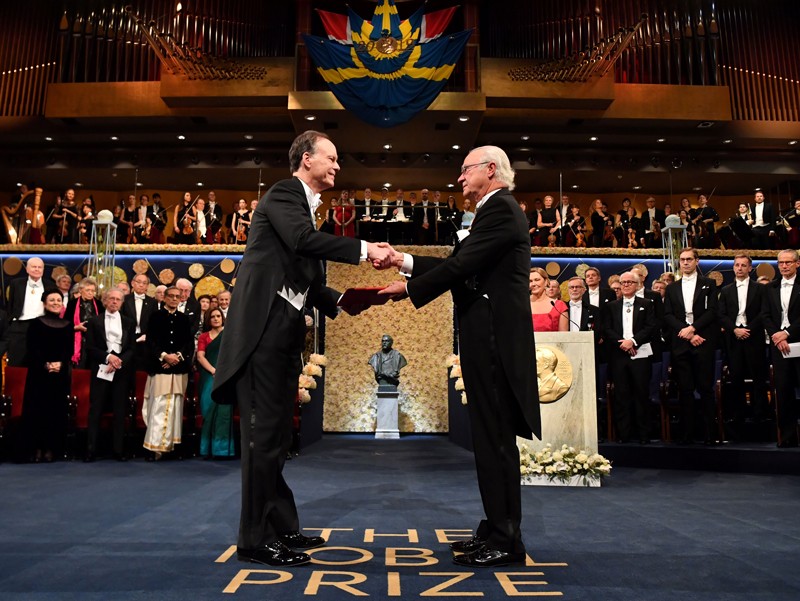Hello Nature readers, would you like to get this Briefing in your inbox free every day? Sign up here.
Some scientists expressed surprise and disappointment that none of this year’s Nobel prizes were awarded to COVID-19 vaccines, particularly those developed using messenger-RNA (mRNA) technology, which have launched a new class of vaccine. The timing of nominations — which must be submitted by 1 February — might be a factor. So too is the question of how mRNA technology will kick off research into vaccines against other diseases. “We want to give credit to the right people. And for the right discovery,” says Göran Hansson, secretary-general of the Royal Swedish Academy of Sciences in Stockholm, which selects the prize winners. “So stay tuned.”
The first samples brought back from the Moon in half a century — and the first ever by a Chinese mission — reveal surprisingly recent volcanic activity. Researchers analysed tiny fragments from the 2 kilograms of lava rock that the Chang’e-5 lander returned last December. The samples indicate volcanism that is at least one billion years younger than any found by NASA’s Apollo astronauts or by the Soviet Union’s uncrewed Luna missions in the 1960s and 1970s.
Researchers are celebrating the historic news that the World Health Organization (WHO) has recommended the roll out of the RTS,S malaria vaccine among children under age five in Africa. But there are challenges ahead: the vaccine, also known as Mosquirix, has shown only modest efficacy, and requires a complex regimen of doses. Some researchers fear that the move will overshadow existing malaria control measures that are often underfunded, such as insecticide programmes and functional health systems. Nevertheless, researchers are grateful for the WHO’s decision. “With the devastation of COVID-19, and with progress stalled on malaria control, and news of resistance to anti-malaria drugs, it’s uplifting to see some positive news,” says epidemiologist James Tibenderana.
Features & opinion
Futures: science fiction from Nature
In this week’s helping of short stories for Nature’s Futures series:
• An alien perspective offers a delightfully fresh viewpoint on a long-ago irreproducible result in ‘Friendship and other anomalous results’.
• Our quest for knowledge has chilling repercussions when aliens harness it for malign intentions in ‘Seams’.
A new book by economist Eswar Prasad probes how digital innovation is reshaping money as both a tool and a concept. “Prasad is deeply interested in the social impact of the digitalization of money, such as making finance more inclusive,” writes reviewer and economist Paola Subacchi. “On one point, however, Prasad seems confident — that although cash will become more marginal, it will never be phased out.”
Google’s artificial intelligence (AI) company, DeepMind, has teamed up with the UK Meteorological Office to predict heavy precipitation up to two hours ahead. Their system was trained on 1.5 million radar observations of rain in the United Kingdom. The forecasts could inform more than just whether to pack an umbrella: extreme weather can violently affect lives and livelihoods.
Nature Podcast | 26 min listen
Subscribe to the Nature Podcast on Apple Podcasts, Google Podcasts or Spotify.






More News
Could bird flu in cows lead to a human outbreak? Slow response worries scientists
US halts funding to controversial virus-hunting group: what researchers think
How high-fat diets feed breast cancer